Comprehensive Hardware Buying Guide: Tips for Quality and Value
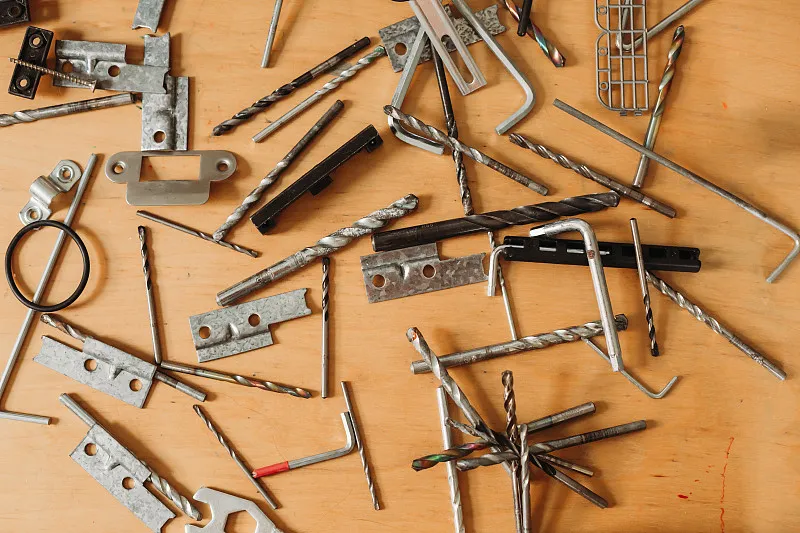
Whether it’s home repairs, construction projects, or industrial production, the right hardware can significantly enhance efficiency and quality. However, with a plethora of hardware supply channels available in the market, it’s often confusing to choose a supplier that offers cost-effective and reliable hardware. Below, we provide a comprehensive and detailed hardware buying guide to help you make the best choice.
Types and Uses of Hardware
Hardware comes in a wide variety, including building hardware, tool hardware, daily use hardware, decorative hardware, and electronic hardware.
Building Hardware: This category includes door and window hardware such as hinges, latches, sliders, door handles, window locks, and door locks. It also encompasses plumbing hardware like faucets, angle valves, floor drains, hoses, and showerheads, as well as fastening hardware like screws, nuts, bolts, washers, and more.
Tool Hardware: Manual tools like wrenches, pliers, screwdrivers, and hammers are part of this group, along with power tools such as drills, saws, grinders, and electric screwdrivers. Pneumatic tools include air wrenches, air screwdrivers, air grinders, and air spray guns. Measuring tools like calipers, micrometers, protractors, and levels are also included, as well as cutting tools like drill bits, milling cutters, lathe tools, and saw blades.
Daily Use Hardware: This includes kitchen hardware such as spatulas, ladles, knives, utensil holders, and pull-out racks, as well as bathroom hardware like towel racks, shelves, mirrors, and showerheads.
Decorative Hardware: Items like door handles, door locks, curtain rods, sofa legs, and coffee tables fall into this category.
Electronic Hardware: This involves power strips, electrical switches, and power cords.
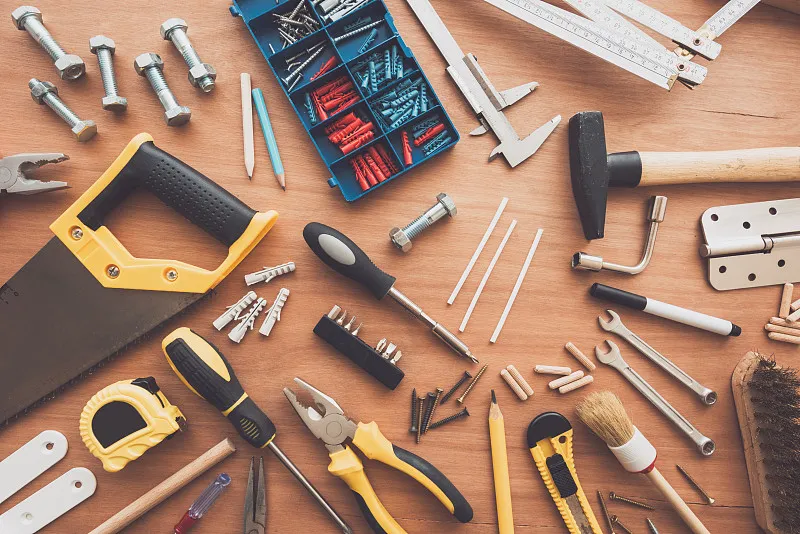
Supply Channels for Hardware
Hardware Stores
Advantages:
– Wide Distribution: Hardware stores are typically found in various neighborhoods and commercial areas, making it convenient for people to purchase needed hardware at any time.
– Immediate Purchase: People can visit hardware stores directly, allowing them to select and buy hardware on the spot without waiting for logistics delivery, catering to urgent needs.
– Professional Advice: Store owners and employees at hardware stores generally have a good understanding of hardware and can provide professional advice and recommendations based on customers’ needs.
Disadvantages of Hardware Stores:
- Limited Brands and Varieties: Hardware stores are typically smaller in scale, offering a limited range of brands and types of hardware, which may not meet the needs of those looking for specific brands or high-end hardware.
- Relatively Higher Prices: Due to higher operating costs and more singular supply channels, the prices of hardware in stores may be slightly higher than other channels.
- Lack of Comparison: With fewer options in hardware stores, it’s challenging to make comprehensive comparisons and selections, which may affect the accuracy of purchasing decisions.
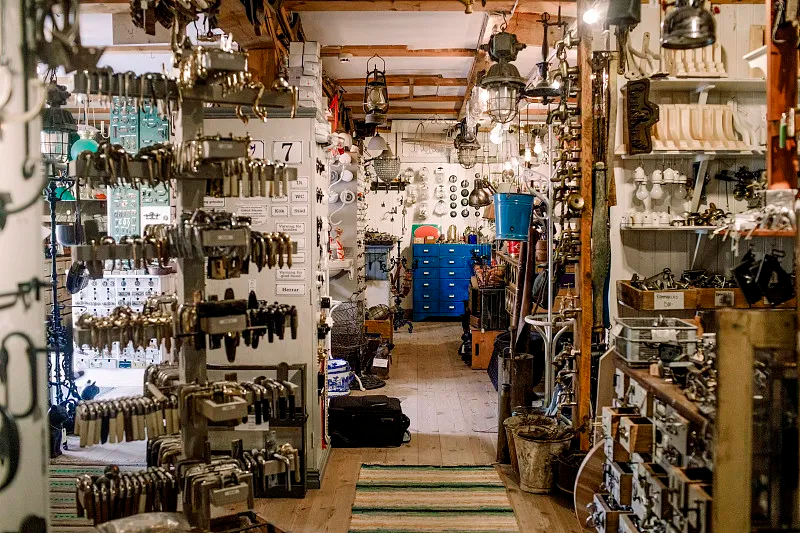
Building Materials Markets
Advantages:
- One-Stop Shopping: Building materials markets offer not only hardware but also a variety of construction and decoration materials, allowing buyers to purchase all needed items in one place, saving time and effort.
- Price Competition: With numerous merchants in the building materials market, there is intense competition, making prices more transparent and affordable. Customers can compare prices from different vendors to choose the most cost-effective purchase plan.
- Product Display: Building materials markets usually have large display spaces, allowing customers to visually inspect various hardware items, understanding their size, appearance, and quality.
Disadvantages:
- Inconsistent Quality: Due to the multitude of merchants in building materials markets, product quality can be inconsistent. Customers need to be diligent in their selection to avoid purchasing poor-quality hardware.
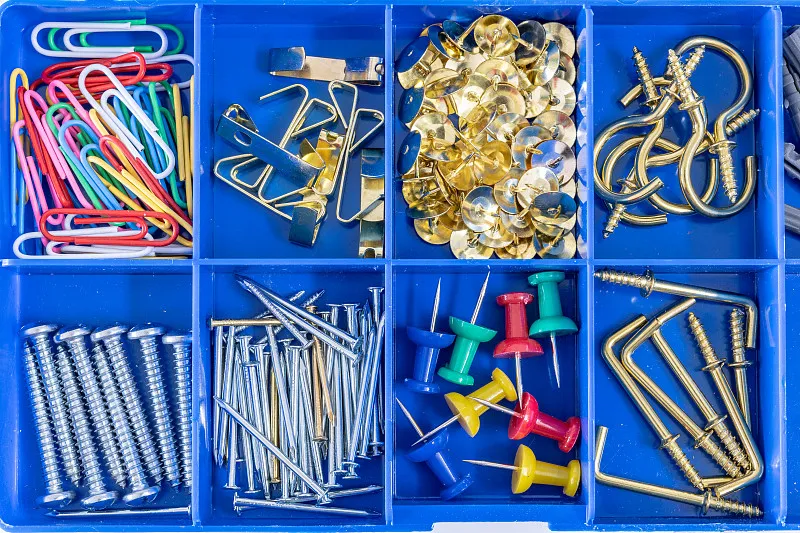
Direct-from-Manufacturer
Advantages:
- Custom Products: Hardware manufacturers can design professional blueprints and produce custom sizes and styles.
- Factory Prices: Prices from hardware manufacturers are at the factory level, without additional markups, allowing for lower prices than store outlets while ensuring quality.
- Quality Assurance: Hardware factories can adjust the quality of their products according to customer needs, and if the quality is not up to par, customers can directly request rework.
Disadvantages:
- Lack of Ready Stock: Hardware factories typically do not keep a large amount of ready stock and require time for order processing and production.
- Not Accepting Small Orders: If the customer’s order quantity is small, most hardware factories will not accept it, as low order quantities can affect the production time of other orders based on production costs.
- High Time Cost: Compared to other channels, finding a stable and long-term cooperative hardware factory supplier requires a significant amount of time.

Professional Hardware Markets
Advantages:
- Extensive Product Variety: Professional hardware markets bring together a vast array of hardware suppliers, offering an incredibly diverse range of products. No matter what type of hardware you need, you can find it here.
- Numerous Brands: These markets house a multitude of well-known domestic and international brands as well as niche brands, allowing customers to choose based on their specific needs and budgets. The competition among different brands also helps keep prices more reasonable.
- Price Advantages: Due to the high number of merchants and intense competition, prices in professional hardware markets are relatively affordable. Customers can compare prices from different vendors to negotiate better deals.
- On-Site Experience: At professional hardware markets, customers can personally inspect and test hardware, experiencing the product’s quality, performance, and ease of use. This helps in making more accurate purchasing decisions.
- Professional Services: Merchants in professional hardware markets typically possess extensive industry experience and expertise, providing professional advice and solutions to customers.
Disadvantages:
- Fixed Locations: The locations of professional hardware markets are generally fixed, which may not be convenient for those living far away. Traveling to the market to purchase hardware can be time-consuming and costly in terms of transportation.
- Inconsistent Quality: While there are many reputable merchants and brand products in professional hardware markets, there can also be instances of inconsistent quality. Some unscrupulous sellers may peddle counterfeit or substandard products, requiring customers to have a certain level of discernment.
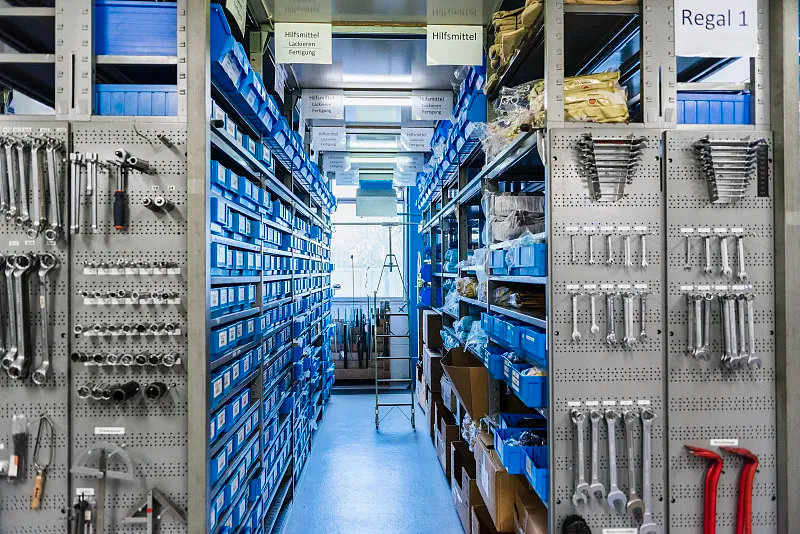
Online Shopping Platforms: E-commerce Platforms
Advantages:
- High Convenience: Customers can access comprehensive e-commerce platforms anytime, anywhere, using computers, smartphones, and other devices. There are no restrictions on time or location. With just a click of a mouse or a touch of a screen, one can browse and purchase a variety of hardware.
- Massive Selection: E-commerce platforms gather numerous hardware manufacturers, offering a wide range of brands and types. Customers can quickly find the hardware they need through search and filter functions, and compare prices and reviews from different sellers.
- Price Benefits: E-commerce platforms often run various promotional activities, such as discounts, bulk reductions, and free gifts. Customers can purchase hardware during these events to enjoy more benefits. Additionally, the operating costs of e-commerce platforms are relatively low, which may result in lower prices for some hardware compared to physical stores.
- User Reviews: There is a wealth of user reviews and product showcases on e-commerce platforms. Customers can read these reviews to understand the quality, performance, and user experience of products, which helps in making better purchasing decisions.
- Fast Delivery: Some e-commerce platforms offer fast delivery services, allowing customers to receive their purchased hardware in a short amount of time, meeting urgent needs.
Disadvantages:
- Lack of Physical Experience: Customers can only understand the appearance and performance of hardware through images, text, and videos, without the ability to touch and try the products personally. This may lead to purchased hardware not matching their expected style.
- After-Sales Issues: If there are quality issues with the purchased hardware or the need for after-sales service, customers must handle it through online communication and mailing, which can be cumbersome and time-consuming. Moreover, the quality of after-sales service varies among sellers, with some potentially shirking responsibility or being untimely in their response.
- False Information: The authenticity of information on e-commerce platforms cannot be fully guaranteed. Some sellers may exaggerate the performance and features of products or provide false user reviews, misleading customers. Therefore, when purchasing hardware, customers need to carefully discern the seller’s reputation and product information.

Brand Specialty Stores
Advantages:
- Quality Assurance: Brand specialty stores only sell hardware from their own brand, ensuring a reliable source and strict quality control. To maintain their brand image and reputation, the brand ensures that the products sold in their stores meet their quality standards.
- Professional Service: Sales staff in specialty stores are professionally trained and have in-depth knowledge of their brand’s hardware, providing expert product introductions, usage guidance, and after-sales service.
- New Product Launches: Brand specialty stores are important channels for brands to showcase and sell new products, allowing customers to be among the first to learn about the latest products and technologies from the brand.
- Comfortable Shopping Environment: The shopping environment in specialty stores is usually comfortable and tidy, with decoration styles and display methods that reflect the brand’s characteristics and image, providing a pleasant shopping experience.
Disadvantages:
- Higher Prices: Due to higher operating costs and price controls by the brand, the prices of hardware in specialty stores may be slightly higher than other channels.
- Single Brand: Specialty stores only sell hardware from one brand, limiting the range of choices for customers. If customers want to compare products from different brands, they need to visit other stores or channels.
- Limited Distribution: The number and distribution of specialty stores may be affected by the brand’s strategic planning and market demand. Some areas may not have a specialty store for a particular brand, or the store may be located in a remote area, making it inconvenient for customers to visit and purchase.

How to Choose the Right Purchase Channel
Choose Based on Needs:
- If you only need to purchase some common small quantities of hardware, you can opt for supermarkets or hardware stores. These channels are convenient and relatively low-cost, meeting the needs of daily home repairs.
- Before purchasing hardware, communicate with the supplier about the details, including the type, specifications, and quantity of the hardware.
Consider Price Factors:
- Price is an important factor when choosing a purchase channel. Prices may vary across different channels, and you can compare prices from different channels to select the most cost-effective one.
- At the same time, be aware not to focus solely on price; consider the quality and performance of the hardware. Some non-standard hardware with excessively low prices may not meet quality standards and could pose safety risks.
Examine Brands and Quality:
- Brand and quality are key considerations when purchasing hardware. Opt for well-known brands, which typically offer more assurance in terms of quality and performance.
- You can learn about the quality and performance of products by reading reviews and viewing product showcases from other customers. When purchasing, inspect the hardware’s appearance, packaging, and product details to ensure the quality meets your requirements.
Consider After-Sales Service:
- After-sales service is also an important factor to consider when buying hardware. Good purchase channels will provide excellent after-sales service.
